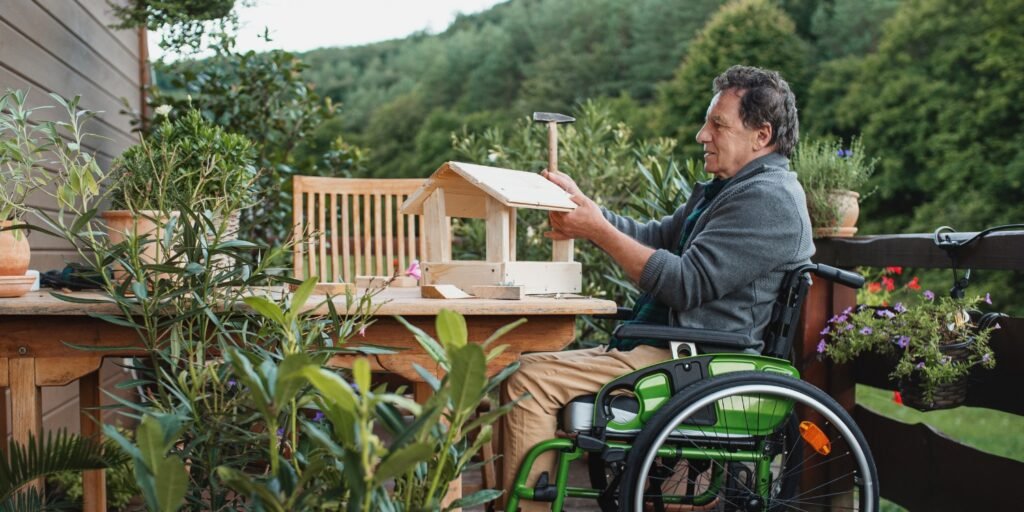Gentle Pest Control Hacks Every Senior Gardener Needs
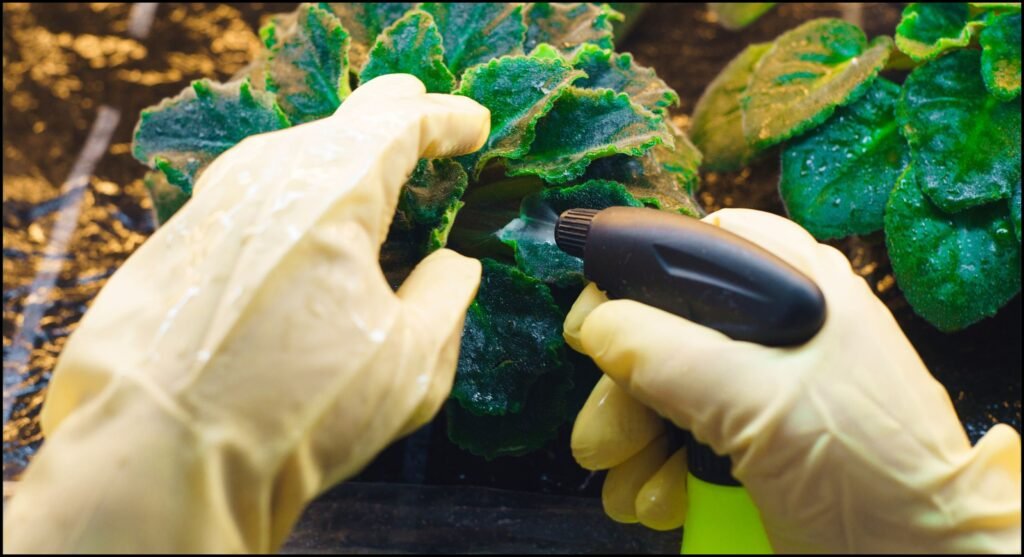
Last Updated on June 30, 2025 by George
Gardening offers seniors a rewarding blend of physical activity, mental relaxation, and the satisfaction of nurturing life. But pesky invaders can turn this peaceful hobby into a frustrating challenge—without resorting to harsh chemicals! Our guide equips you with senior-friendly pest control methods that prioritize safety, simplicity, and harmony with nature.
Key takeaways include:
- Nature’s allies: Harness beneficial insects like ladybugs and bees to maintain garden balance.
- Smart Planting: Use companion plants like marigolds and basil to repel pests naturally.
- Barrier Basics: Protect plants with row covers or fencing to block intruders effortlessly.
- DIY solutions: Create safe sprays using mild soap or spicy peppers to deter pests.
- Ergonomic tools: Reduce strain with lightweight, long-handled tools and supportive gear.
Whether you’re managing aphids or deterring deer, these strategies empower you to safeguard your harvest while respecting your body and the environment. Ready to reclaim your garden’s peace? Let’s dig in!
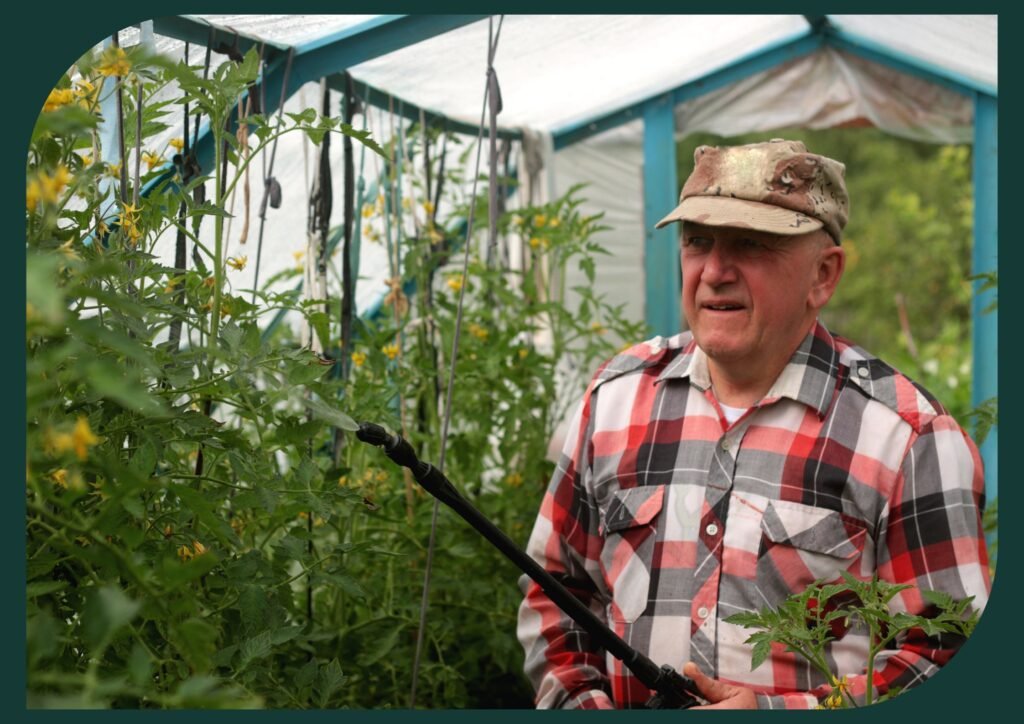
The Basics of Senior-Friendly Pest Control
Gardening provides seniors with a unique blend of physical exertion and mental relaxation. Beyond the joy of cultivating plants, gardening offers a gentle workout, strengthening muscles and improving flexibility while engaging the mind. The serene environment of a garden acts as a stress buster, calming the mind and lifting the spirit.
Research shows that regular gardening can help maintain cognitive function in seniors, keeping mental skills sharp as they strategize plant growth and care. Yet with age come certain physical constraints. Tasks like bending, kneeling, or even detecting early signs of pest infestations become more challenging. These limitations can affect a senior gardener’s ability to address pest control issues effectively.
Recognizing and addressing these challenges is essential. By adapting your approach to pest management, you can continue to enjoy all the benefits of gardening without unnecessary strain or exposure to harmful chemicals.
Prefer to listen rather than read?

Senior-Friendly Pest Control in Your Garden
Long-time gardening enthusiasts take pride in growing healthy flowers, fruits, and vegetables. However, this requires dealing with persistent pests determined to feast on your carefully tended plants.
Throughout history, gardeners have battled destructive insects. As pests travel between gardens, many senior gardeners have traditionally turned to chemical solutions. Unfortunately, these commercial pesticides often contain toxic compounds that can be particularly hazardous for seniors with respiratory issues or compromised immune systems.
Environmental experts increasingly warn against overusing chemical pesticides. These substances don’t just harm the targeted pests—they can damage beneficial insects, contaminate soil and water, and potentially affect human health.
The ideal approach for seniors combines environmentally friendly pest control methods that consider both plant health and the gardener’s well-being. By understanding the ecosystem of your garden, you can develop targeted strategies that work with nature rather than against it.
When planning your garden, research plant varieties that naturally resist common pests in your region. Extension offices and gardening clubs can provide valuable information about which plants thrive locally with minimal pest problems.

Effective pest management starts with prevention. Whenever possible, choose pest-resistant cultivars for next season’s planting. These varieties have been specifically developed to withstand common pest pressures. If resistant varieties aren’t available in your area, or if you’re growing particularly susceptible plants, be proactive about monitoring. Different plants attract different pests, so understanding these relationships helps you apply the right natural solutions before problems escalate.
Rather than waiting until pest damage is severe, implement natural pest control methods throughout the growing season. For instance, if leafhopper insects are common in your garden, install yellow sticky traps—these insects are attracted to the color and will be caught before damaging your plants. Learning to identify both harmful and beneficial insects is crucial for effective management.
Beneficial insects like ladybugs, lacewings, and predatory wasps naturally control many common garden pests. Creating a welcoming environment for these helpful species reduces the need for intervention. Examine your garden at least weekly during the growing season, paying close attention to leaf undersides and new growth where pests often begin feeding. A magnifying glass can be helpful for seniors who find it difficult to spot tiny insects.

Know Your Enemy
Acquiring knowledge about common garden pests is fundamental to effective control. Just as a doctor diagnoses an ailment before prescribing medicine, you need to identify specific pests to apply the appropriate remedy. Garden pests come in various sizes and types. Aphids are tiny insects that suck the sap from plants, causing wilting and distortion. Caterpillars, meanwhile, can rapidly defoliate plants by chewing through leaves and sometimes fruit.
Beyond insects, watch for signs of disease. Powdery mildew appears as a dusty white coating on leaves, potentially causing yellowing and premature leaf drop. Similarly, plant blight causes browning and wilting. Understanding which specific pests are affecting your plants allows you to implement targeted, effective solutions rather than using generalized treatments that might harm beneficial insects or be unnecessary for your particular situation.
Beneficial Insects
In the complex web of garden ecosystems, not all insects are enemies. Many play vital roles in maintaining balance and supporting plant health. Ladybugs, with their distinctive spotted shells, consume large quantities of aphids—a single ladybug can eat up to 5,000 aphids in its lifetime! Similarly, lacewings prey on aphids, mealybugs, and small caterpillars.
Bees, our essential pollinators, ensure the production of many fruits and vegetables. Their contribution to food production makes them invaluable garden allies. For senior gardeners, understanding and preserving this natural balance is particularly important. Rather than using broad-spectrum insecticides that kill indiscriminately, targeted approaches protect beneficial insects while controlling destructive pests.
Creating diverse gardens with native flowering plants attracts and sustains beneficial insects, establishing a natural pest control system that works continuously with minimal intervention required.
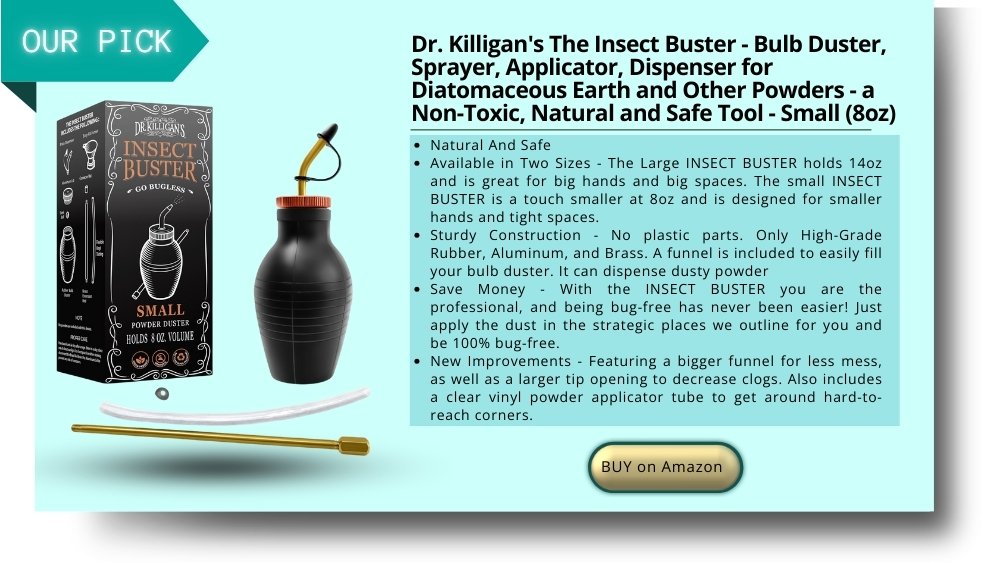
Organic Pest Control: The Green Solution to Garden Pests
Organic pest control methods align perfectly with the holistic, health-conscious approach many seniors prefer. These natural solutions offer effective alternatives to harsh chemicals.
Neem Oil
Extracted from the seeds of the neem tree, this natural substance acts as a powerful insect deterrent. When sprayed on plants, neem oil disrupts the life cycle of pests, making it difficult for them to feed and reproduce. One significant advantage of neem oil is its selectivity—it generally affects only insects that feed on the treated plants, sparing beneficial predators. Additionally, it’s biodegradable and non-toxic to birds, mammals, and most beneficial insects when used as directed.
Diatomaceous Earth
This fine powder made from fossilized aquatic organisms looks harmless to the human eye but acts as microscopic razor blades to insects. When pests crawl across diatomaceous earth, it damages their exoskeletons, leading to dehydration and death.
For seniors, this provides a non-toxic option that’s safe to use around gardens and homes. Apply it as a barrier around plants or directly on soil to control crawling insects.
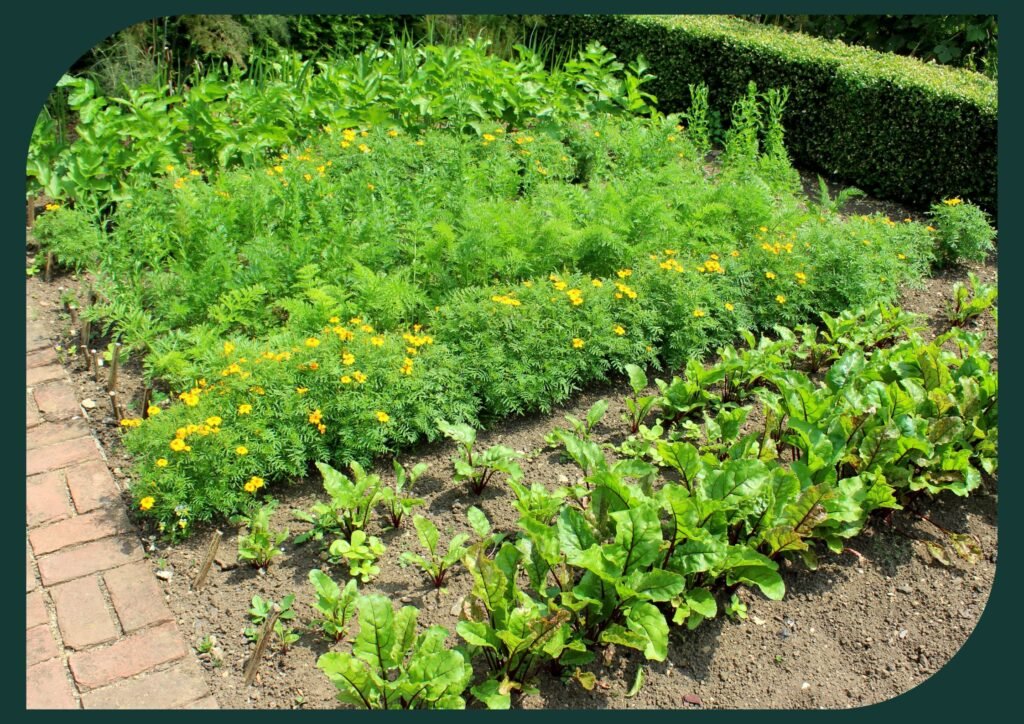
Companion Planting
Nature has developed its own pest management system through plant relationships. Certain plants, when grown together, naturally repel pests or attract beneficial insects. Marigolds planted throughout the garden help control nematodes (microscopic worms that damage roots). Basil repels mosquitoes and flies, while also improving the flavor of neighboring tomatoes. Nasturtiums act as trap crops, attracting aphids away from your vegetables.
This method reduces the need for any sprays or powders, creating a self-regulating garden ecosystem that’s easier to maintain and healthier for everyone. This natural pest control method is a testament to the fact that one doesn’t need to resort to harsh chemicals to maintain a thriving garden. By using nature’s pest control system, you can nurture your garden in a way that is both safe and in harmony with the environment.
Barrier Methods for Senior Gardeners
Physical barriers provide excellent first-line defense against pests. These methods physically prevent pests from reaching your plants without using any chemicals.
Row Covers
Lightweight, breathable fabrics draped over garden beds create protective shields that block insects while allowing sunlight, air, and water to reach plants. For seniors, row covers offer a “set and forget” solution that doesn’t require frequent application like sprays. These covers are particularly effective against flying insects like aphids and moths, and also provide some protection from unexpected light frosts.
Choose covers of appropriate weight depending on the season—lightweight for summer and heavier options for cooler periods.
Fencing Wisdom
While row covers work well for smaller pests, sturdier barriers may be necessary for larger visitors. A well-designed fence can prevent rabbits, deer, and neighborhood pets from treating your garden as their personal buffet. For small animals like rabbits, bury the fence several inches into the ground to prevent burrowing. For deer, taller structures (at least 6-8 feet) are typically needed.
Modern garden fencing combines functionality with aesthetic appeal, offering options from rustic wooden designs to elegant metal barriers that enhance rather than detract from your garden’s beauty.
Safe Sprays and Solutions: DIY Mixes for Natural Garden Pest Control
Creating your own pest control solutions gives you complete control over the ingredients, ensuring safety for both you and your garden ecosystem.
Soap Solutions
A simple mixture of mild dish soap and water creates an effective spray against soft-bodied insects like aphids and mites. The soap breaks down the protective outer layer of these pests, causing dehydration without harming plants when properly diluted. For best results, use pure castile soap without additives like bleach or antibacterial agents that might damage plants. Apply in the early morning or evening, avoiding the hot midday sun, which could cause leaf burn when combined with soapy residue.

Garlic and Hot Pepper Sprays
Aromatic compounds in garlic and capsaicin in hot peppers create natural repellents that many insects find unpleasant. Blend several garlic cloves or hot peppers with water, strain the mixture, and spray on plants to deter a variety of pests. This solution is particularly effective against aphids, spider mites, and certain caterpillars. As a bonus, these sprays are completely non-toxic and safe for food plants.
Herbal Deterrents
Many common herbs double as natural pest control. Strong-smelling plants like mint, thyme, rosemary, and lavender contain essential oils that repel numerous insect species. Create herbal sprays by steeping chopped herbs in hot water, cooling the mixture, and applying to plants. Alternatively, strategically plant these herbs throughout your garden as living pest deterrents that also provide culinary benefits.
Ergonomic Tools for the Task: Crafting a Comfortable Gardening Experience for Seniors
Gardening should be a pleasure, not a pain. The right equipment makes all the difference in creating a sustainable, enjoyable gardening practice for seniors.
Long-Handled Tools
Extended periods of bending or kneeling can be challenging and uncomfortable. Long-handled tools allow seniors to tend their gardens while maintaining better posture and reducing strain on joints. Look for lightweight options with padded, ergonomic grips that reduce hand fatigue. Tools with adjustable length settings provide customized comfort for gardeners of different heights or those who alternate between sitting and standing while working.
Lightweight Equipment
Garden tools designed specifically for seniors focus on reducing weight without sacrificing durability or effectiveness. From pruners with easy-grip handles to lightweight watering cans, these specialized tools make garden maintenance more accessible. Carbon fiber handles offer excellent strength-to-weight ratios, while ergonomic designs distribute force more efficiently, requiring less strength to accomplish the same tasks.

Safety First
Garden safety involves more than just avoiding cuts—it means creating a comprehensive approach to protecting yourself while working outdoors. Always wear gardening gloves to shield hands from thorns, rough surfaces, and potential irritants from plants. Wide-brimmed hats provide essential protection from sun exposure, while sturdy, non-slip footwear prevents falls on uneven or wet garden surfaces.
For seniors who take medications that increase sun sensitivity, additional precautions like long sleeves and sunscreen are important even during brief gardening sessions. They also provide a better grip, reducing the chances of tools slipping. But the protection doesn’t stop at the hands. A wide-brimmed hat is more than a fashion statement; it offers shade, keeping the sun off the face and neck, and reduces the risk of sunburn or heatstroke.

Remember, Gardening Should Not Be a Toxic Battle!
Senior gardening should be a source of joy and fulfillment, not stress or health concerns. With the right knowledge, appropriate tools, and natural methods, you can create and maintain a thriving garden that produces beautiful flowers and nutritious food without exposing yourself to harmful chemicals.
Embrace these senior-friendly pest control methods as part of your gardening philosophy. Take time to observe your garden’s natural patterns, implement preventative measures before problems arise, and remember that perfect produce doesn’t require perfect pest elimination—some minor cosmetic damage is a small price for healthier growing practices.
So put on your favorite gardening hat, grab your ergonomic tools, and embark on a gardening journey that promises joy, connection with nature, and the satisfaction of growing your own bountiful harvest. Happy gardening!
Frequently Asked Questions About Senior-Friendly Pest Control
- How can I identify beneficial insects versus harmful ones in my garden?
- Beneficial insects typically include ladybugs (red with black spots), lacewings (delicate green insects with transparent wings), bees (various sizes with fuzzy bodies), and praying mantises (distinctive prayer-like front legs). Harmful pests include aphids (tiny pear-shaped insects in clusters), caterpillars (soft-bodied larvae that chew leaves), and Japanese beetles (metallic green-copper beetles). A simple magnifying glass and a good insect identification guide can help you distinguish between them.
- Are natural pest control methods really effective against serious infestations?
- Natural methods work best as part of a prevention strategy or for addressing minor to moderate pest issues. For severe infestations, you may need to combine several natural approaches simultaneously or use them more frequently. Consistency is key—natural solutions often require regular application rather than one-time treatments. If an infestation is overwhelming, consult with your local extension office for guidance on the least toxic effective options.
- How can I make pest control easier when I have arthritis in my hands?
- Look for spray bottles with easy-grip handles or electric sprayers that require minimal hand strength. Pre-mixed solutions in ready-to-use containers eliminate the need for measuring and mixing. For applying powders like diatomaceous earth, use applicators with long handles that require less precision. Consider recruiting help for the initial setup of barrier methods like row covers or fencing, which typically need less frequent maintenance once installed.
- When is the best time of day to apply natural pest control sprays?
- Early morning or late evening is ideal. During these times, beneficial insects like bees are less active, reducing the chance of affecting them. Additionally, applying sprays when the sun isn’t strong prevents leaf burn that can occur when water droplets magnify sunlight on leaves. Avoid spraying on windy days to ensure accurate application and prevent drift onto unwanted areas.
- How can I protect my garden from pests when I’m away for extended periods?
- Automated systems can help maintain pest control while you’re away. Consider installing timed drip irrigation with diluted neem oil or soap spray additions. Permanent physical barriers like fencing and row covers provide continuous protection. Ask a neighbor or family member to check periodically for any emerging pest issues. Before leaving, harvest ripe produce to avoid attracting pests with overripe fruits or vegetables.
- Are there any plants that naturally repel multiple types of garden pests?
- Yes! Several multi-purpose repellent plants are worth incorporating into your garden. Marigolds deter nematodes, aphids, and many beetles. Lavender repels moths, fleas, flies, and mosquitoes. Nasturtiums act as trap crops for aphids while deterring squash bugs and whiteflies. Rosemary repels a variety of insect pests including cabbage moths and carrot flies. Strategically placing these plants throughout your garden creates natural pest control zones.
- How do I balance using enough pest control to be effective without harming beneficial insects?
- Practice targeted application by treating only affected plants rather than spraying the entire garden. Use selective methods like handpicking larger pests, using barriers around vulnerable plants, and choosing pest-specific solutions when possible. Time applications to avoid peak activity periods of beneficial insects (avoid midday applications when pollinators are most active). Monitor results and adjust concentration or frequency as needed based on pest activity.
- What are the simplest, low-maintenance pest control methods for seniors with limited mobility?
- Focus on preventative strategies that require less ongoing effort. Choose resistant plant varieties from the start. Use permanent physical barriers like raised beds with built-in protection. Encourage natural predators by installing birdhouses, bat boxes, or insect hotels. Mulch heavily to suppress weeds and some ground-dwelling pests. Consider container gardening on tables or elevated surfaces for easier access and simplified pest management.
REFERENCES
- American Horticultural Therapy Association (2023). “Green Care for Healthy Aging and Holistic Healing for People with Dementia: A Scoping Review.”
- Environmental Protection Agency. “Common Sense Pest Control for the Home and Garden” Public Health Advisory Series.
- University of California Cooperative Extension (2024). “Vegetable Pests & Solutions”.
- Research Gate. “Conserving Beneficial Insect Species for Healthy Gardens.“




